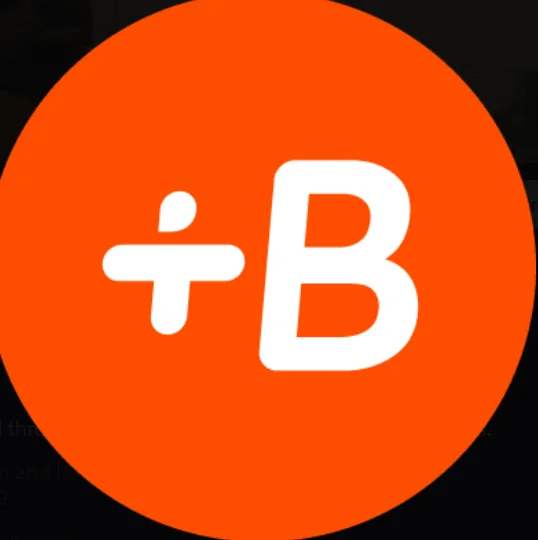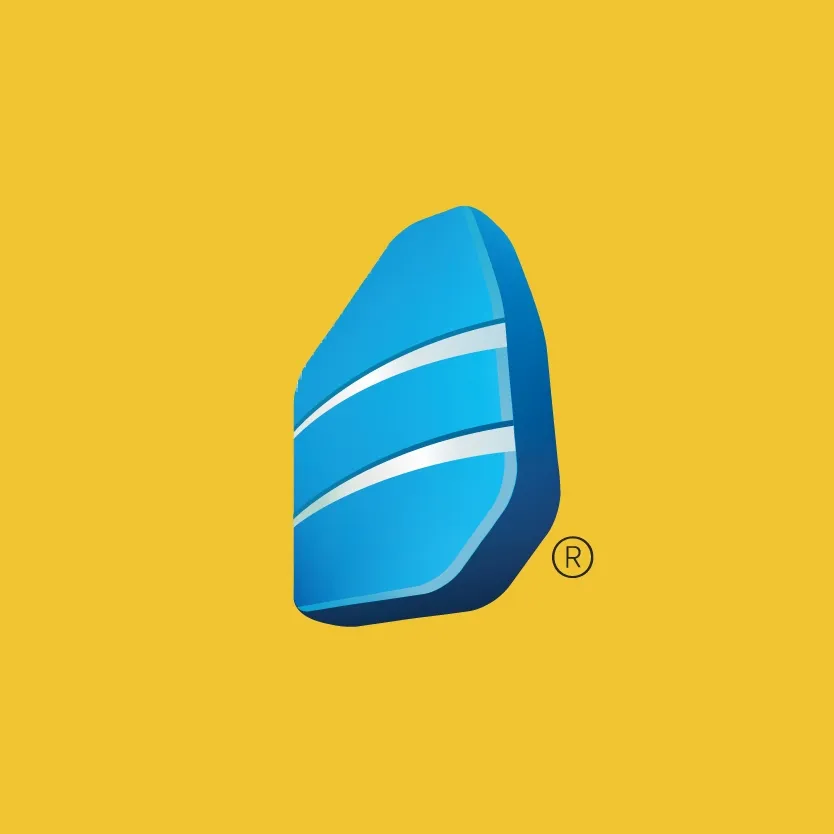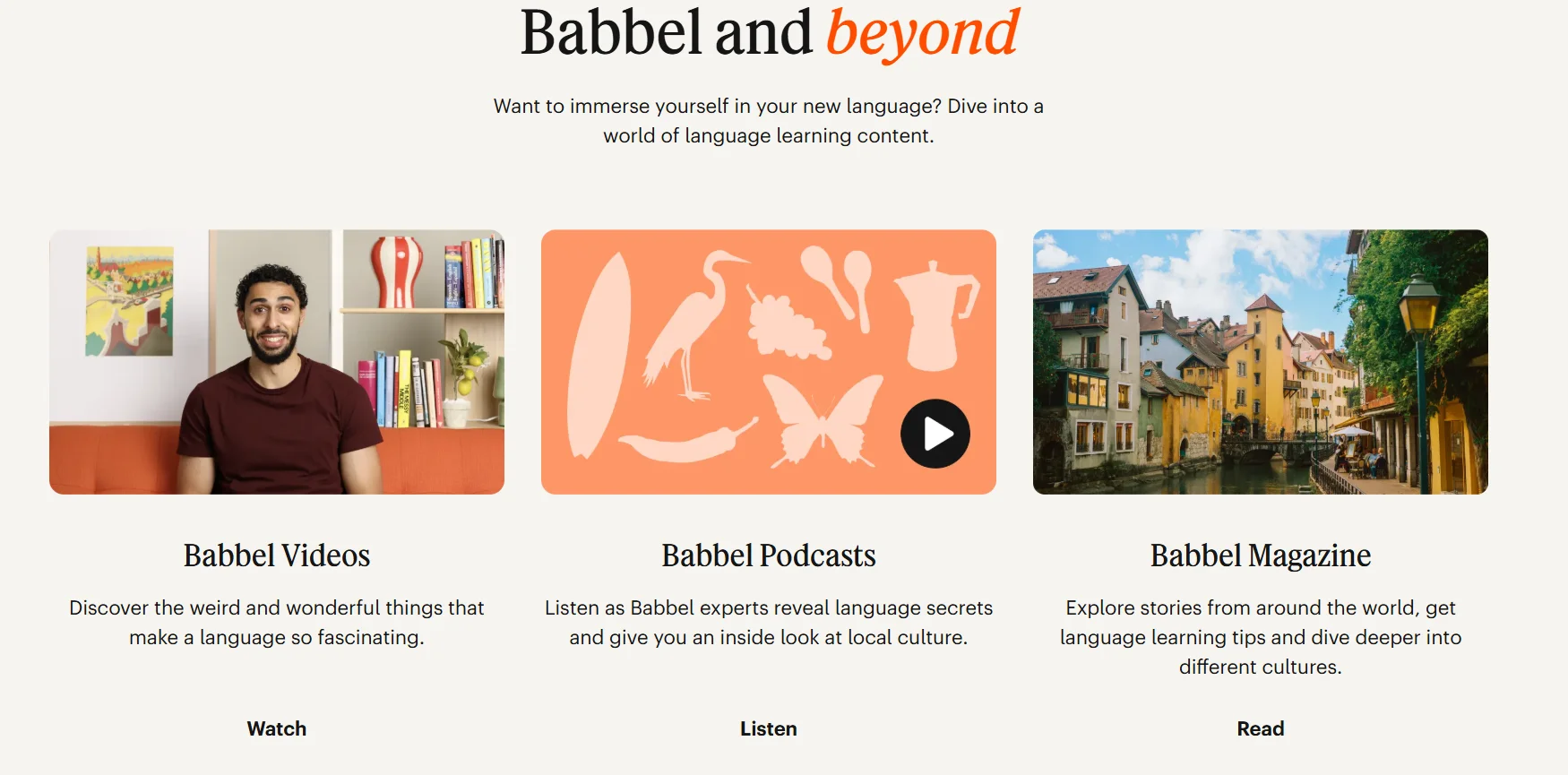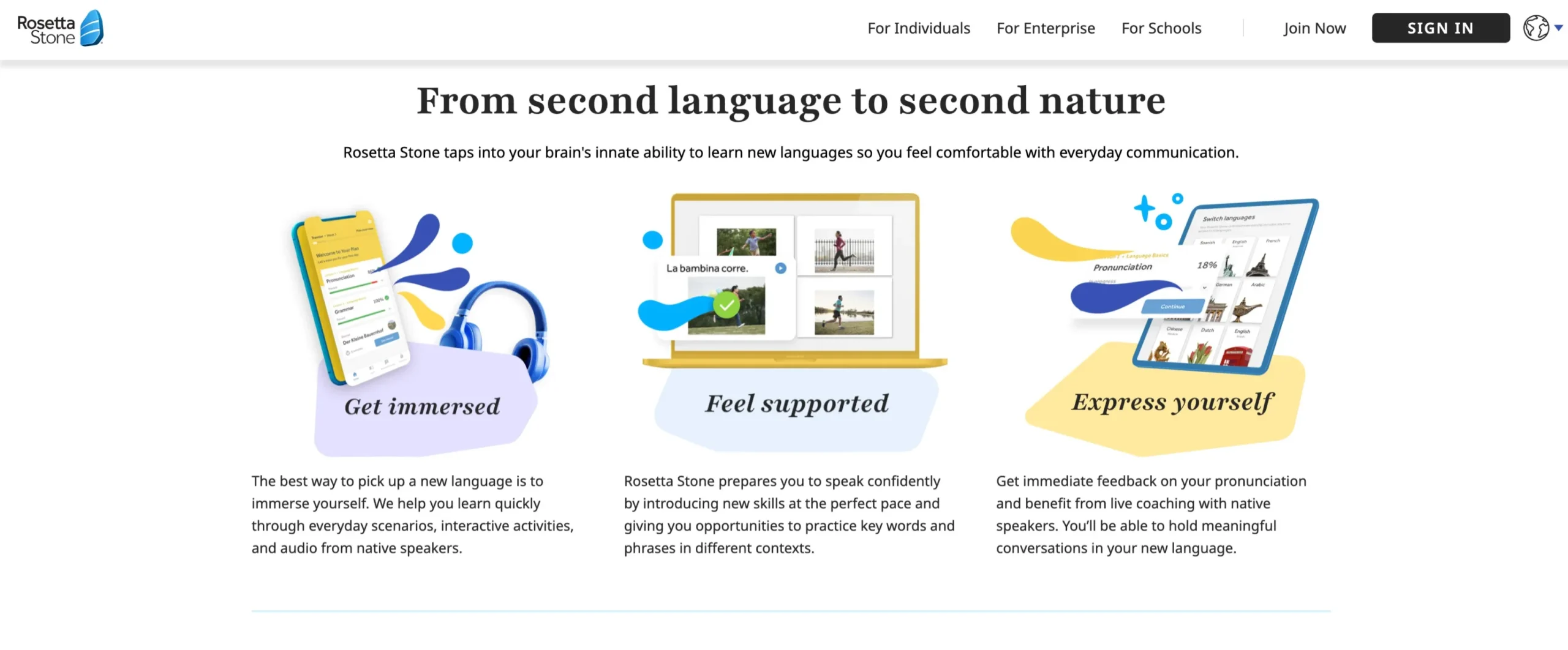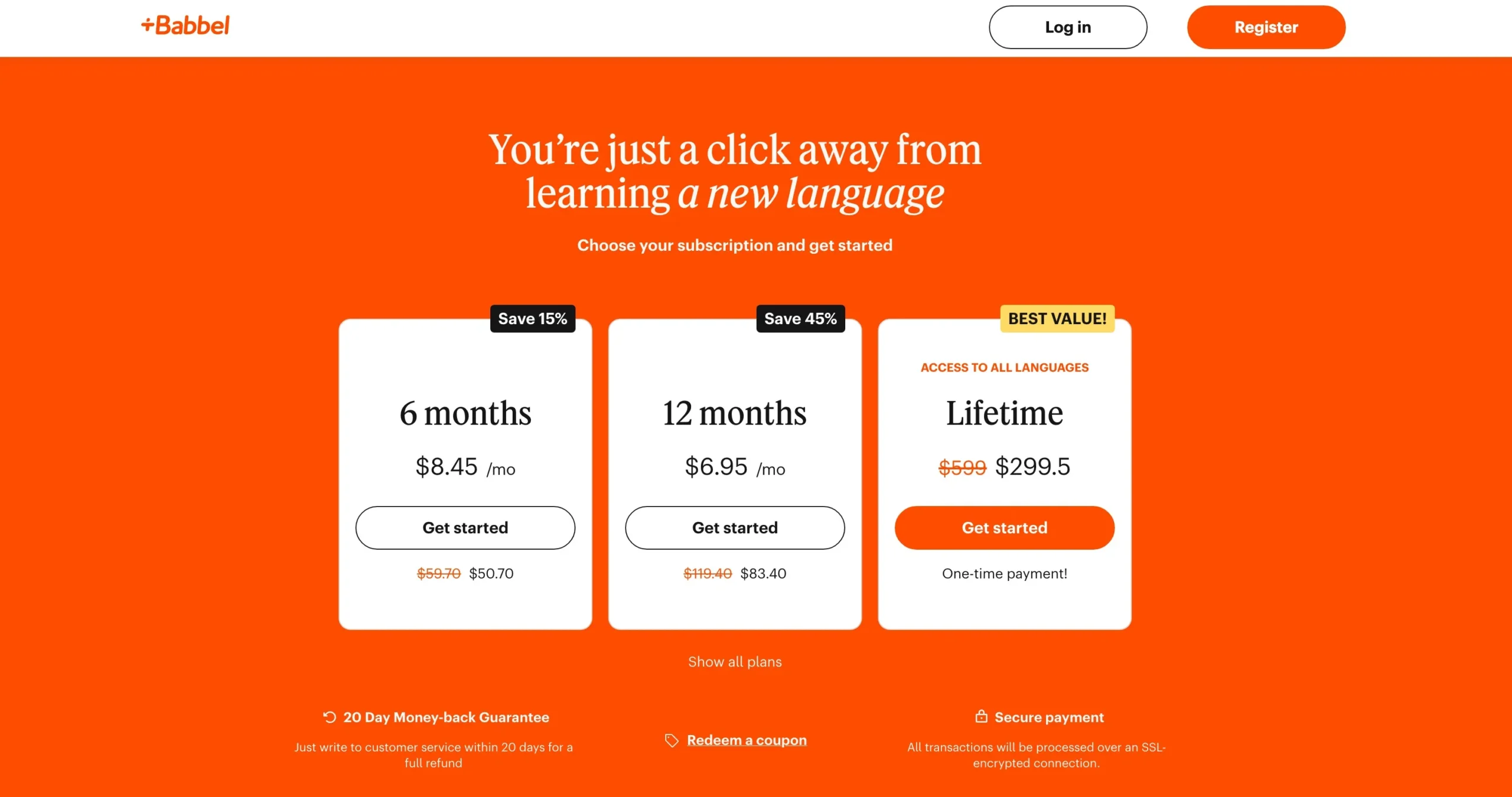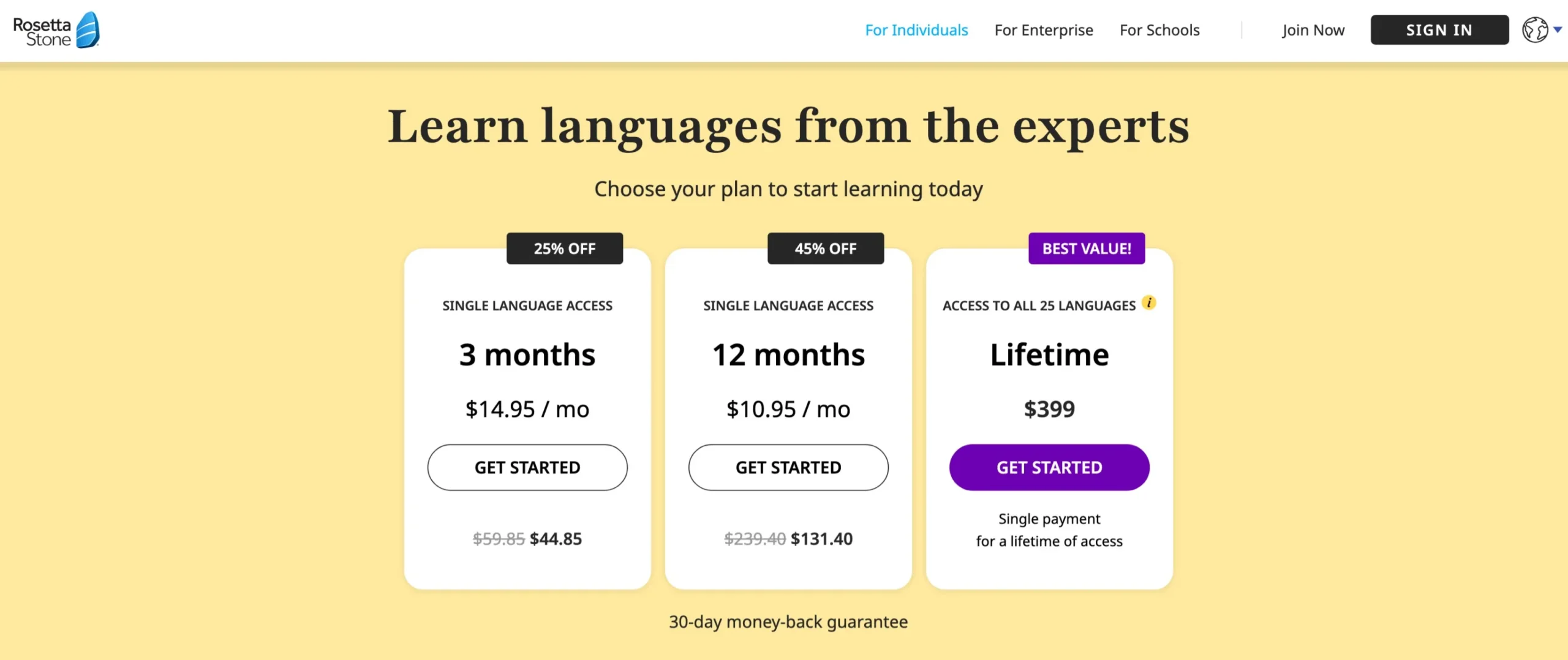Best For | Best for practical conversations, grammar focus, and short, interactive lessons. | Best for immersion learning, pronunciation improvement, and structured language practice. |
Price | $12.95 | $14.95 |
Features | Practical conversations | Full immersion |
Pros | Real-world vocabulary | Covers all skills |
Cons | Limited languages | More expensive |
Looking For Unbiased Comparison Between Babbel Vs Rosetta Stone. I’ve got you covered.
Trying to learn a new language but can’t decide between Babbel and Rosetta Stone? Both are popular, but they take different approaches.
Babbel focuses on practical conversations with short, interactive lessons, while Rosetta Stone uses full immersion to help you think in the language naturally.
So, which one is the better choice for you? In this Babbel vs. Rosetta Stone comparison, I’ll go over their features, pricing, and teaching styles to help you find the best fit for your learning journey.
Let’s Find Out In a Much Easy Way!
Babbel Vs Rosetta Stone 2025: The Ultimate Comparison
Babbel Overview
Babbel is a well-known language-learning app designed for practical conversation skills. It offers 14 languages and focuses on vocabulary, pronunciation, grammar, and sentence-building.
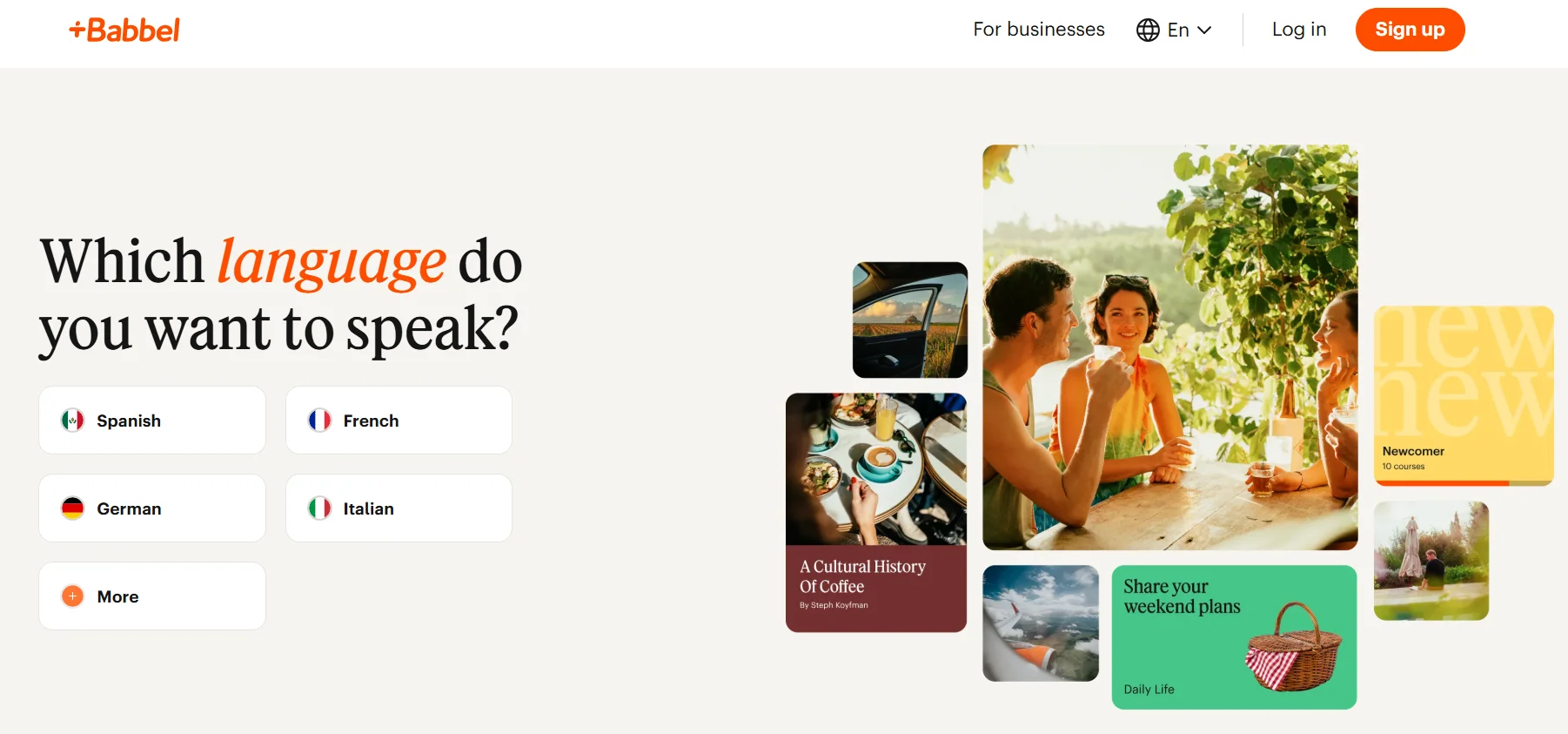
The lessons are short, interactive, and structured, making it easy for learners to fit into a busy schedule.
Babbel is a paid platform, but it is more affordable than Rosetta Stone. It is best suited for beginners who want to learn useful phrases for real-life situations without spending too much.
Rosetta Stone Overview
Rosetta Stone is a popular immersion-based language-learning platform that offers 30+ languages.
Unlike Babbel, it does not use translations. Instead, learners understand words through images, sounds, and context to help them think in the target language.
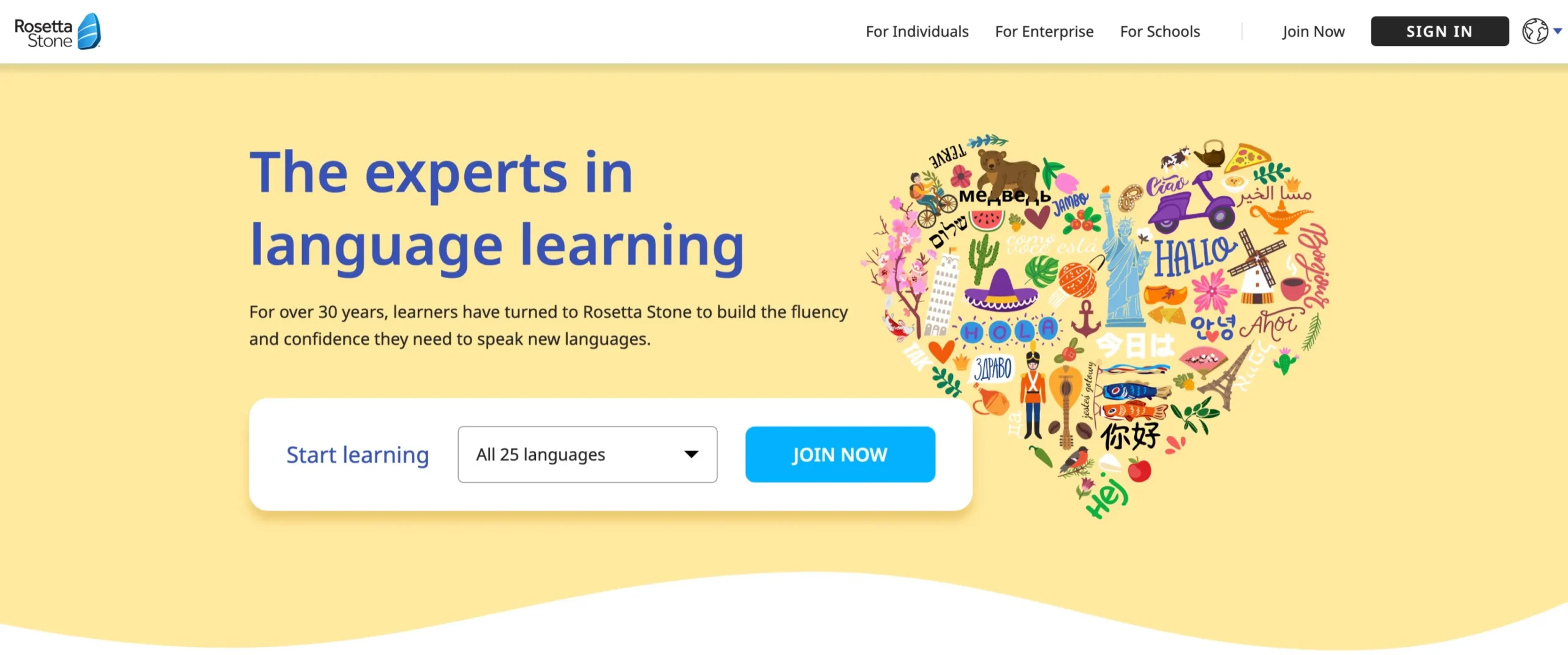
This platform is more structured and professional, but it is also more expensive. It is ideal for learners who want a deep and immersive experience and do not mind spending extra for long-term benefits.
Which One is Better: Babbel or Rosetta Stone?
Babbel and Rosetta Stone are both top choices for learning a new language, but Babbel offers better value for most learners.
- Babbel is more affordable and focuses on interactive, practical lessons that help learners speak with confidence.
- Rosetta Stone is better for full immersion, but it requires more time and commitment to see progress.
For quick, real-world language skills, Babbel is the better choice. If you prefer a structured, translation-free learning method, Rosetta Stone is the right option.
Languages Offered: Babbel Vs Rosetta Stone
Babbel Languages (14 total)
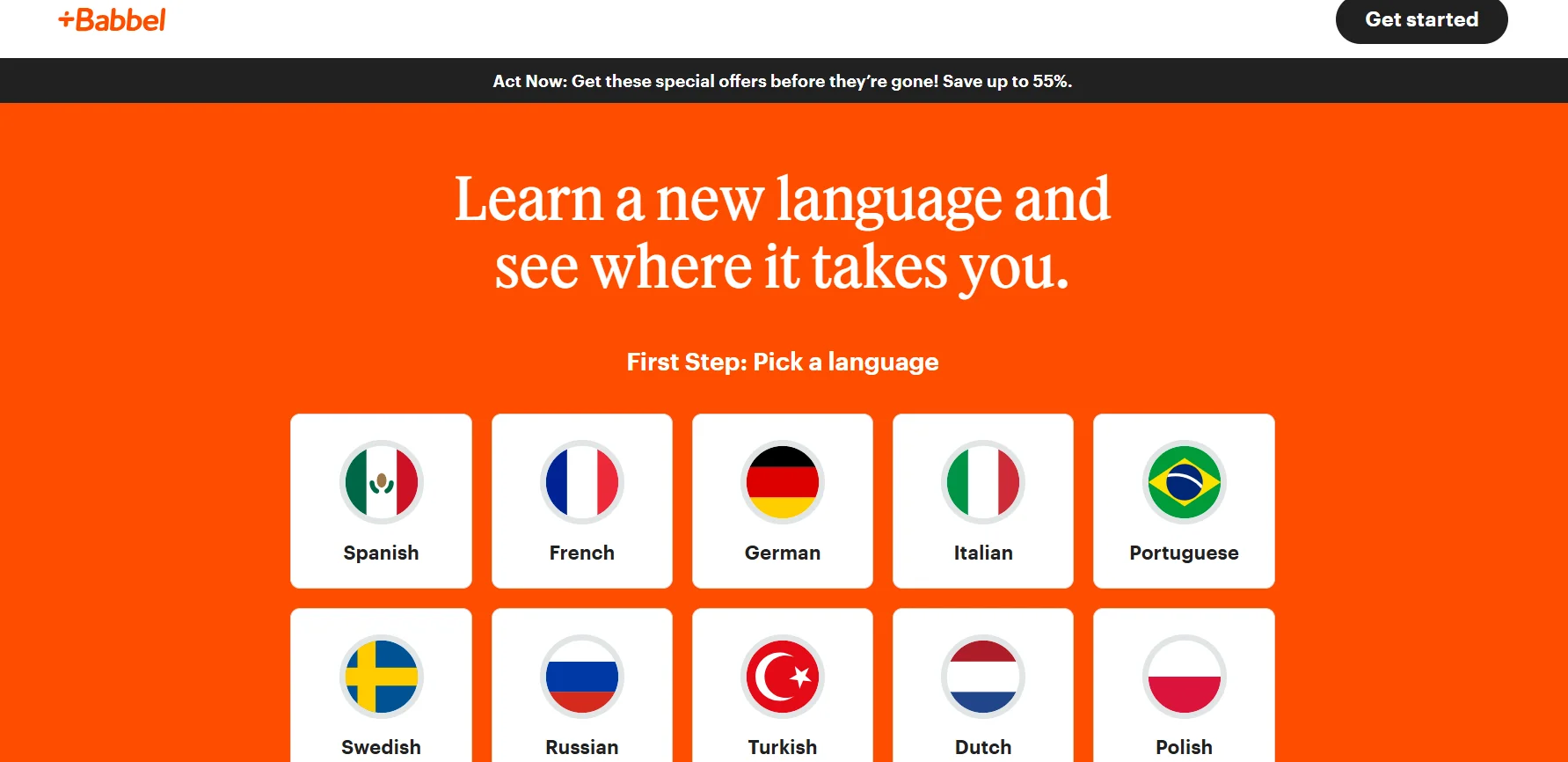
Danish, French, English, Dutch, German, Indonesian, Italian, Polish, Portuguese (Brazilian), Russian, Swedish, Spanish, Norwegian, Turkish
Rosetta Stone Languages (23+ total)

Arabic, Chinese (Mandarin), Dutch, English (American & British), French, German, Hebrew, Greek, Hindi, Italian, Japanese, Korean, Latin, Persian, Polish, Portuguese (Brazilian), Russian, Spanish (Spain & Latin America), Swahili, Swedish, Turkish, Urdu, Vietnamese, and more
Rosetta Stone offers more languages, but Babbel provides better-structured lessons for the ones it does offer.
Courses Structure: Babbel Vs Rosetta Stone
Babbel Course Structure
- Focus on Practical Conversations – Lessons are designed to help learners engage in real-life conversations quickly.
- Grammar & Vocabulary Integration – Grammar rules are explained within the context of sentences, making it easier to understand.
- Interactive Exercises – Uses fill-in-the-blank, multiple-choice, and listening activities to reinforce learning.
- Short, Structured Lessons – Each lesson lasts around 10-15 minutes, making it easy to fit into a busy schedule.
- Personalized Learning Path – Lessons adjust based on progress, ensuring learners focus on areas they need to improve.
- Speech Recognition – Helps with pronunciation practice, but it is not as advanced as Rosetta Stone’s system.
- Review & Reinforcement – Includes a spaced repetition system (SRS) to help retain new words and phrases.
Rosetta Stone Course Structure
- Full Immersion Learning – No translations; instead, learners understand words through pictures, context, and repetition.
- Progressive Lesson Structure – Starts with basic words and phrases, gradually building to complex sentences.
- Speech Recognition (TruAccent™) – Advanced technology that helps learners perfect pronunciation.
- Four-Skill Approach – Lessons include reading, listening, speaking, and writing for a well-rounded experience.
- Longer, In-Depth Lessons – Each lesson takes about 30 minutes, requiring more time and commitment.
- Fixed Learning Path – Lessons follow a step-by-step structure without customization based on learner progress.
- Repetitive Drills – Heavy use of matching images to words and phrases, which may feel repetitive over time.
How They Work: Babbel Vs Rosetta Stone
How Babbel Works?
Step 1: Choose a Language & Subscribe
Pick a language and sign up for a free trial or paid plan.
Step 2: Take a Proficiency Test
Answer 5 questions to determine your language level.
Step 3: Start Learning
Follow interactive lessons, covering grammar, vocabulary, and conversations.
How Rosetta Stone Works?
Step 1: Sign Up & Try the Demo
New users get a demo lesson showcasing the platform’s learning method.
Step 2: Choose a Subscription or CD-ROM
Pick between an online plan or a CD-ROM version for offline access.
Step 3: Use Immersion-Based Learning
Learn through images, sounds, and real-world scenarios—without translations.
Difference Between Babbel And Rosetta Stone?
Babbel and Rosetta Stone are two popular language-learning programs designed to help users learn a new language.
The main difference between the two lies in their teaching methods: Babbel focuses on developing conversational skills, while Rosetta Stone emphasizes total immersion.
Babbel incorporates audio, video, text, and interactive lessons to assist users in practicing their conversational skills. In contrast, Rosetta Stone immerses users in the language through images and audio alone.
Both programs effectively teach languages, but Babbel is better suited for improving conversational practice, while Rosetta Stone excels in providing a total immersion experience in a new language.
Speculation: Babbel Vs Rosetta Stone
Babbel Speculation
Babbel provides extensive daily conversational practice to enhance learning. Additionally, its online English tests offer learners reliable evidence of their progress and a certificate of achievement that reflects their accomplishments.
The platform is accessible via the web, iOS, and Android, making it convenient for users.
It offers a variety of courses, including beginner and intermediate levels, as well as grammar and vocabulary lessons. Learners can also explore tongue twisters, idioms, colloquialisms, and proverbs.
The creators of the software tailor content to specific audiences; for example, learners can focus on “PR English” or “Marketing English” based on their professional needs.
Rosetta Stone Speculation
Rosetta Stone offers audio companions that can be accessed offline, making it easier to learn while commuting.
Its voice recognition feature works exceptionally well, helping users perfect their pronunciation.
The app also breaks down words, making them easier to pronounce and understand; for example, the German word “Essen” is divided into “es” and “sen.” Additionally, users can choose from 24 different languages.
With all these features, I can confidently say that I find Rosetta Stone to be user-friendly, with excellent graphics and layout.
Main Differences: Babbel vs. Rosetta Stone
| Feature | Babbel | Rosetta Stone |
|---|---|---|
| Pricing | $12.95/month | $179-$479/year |
| Learning Style | Interactive & practical | Immersive & structured |
| Languages | 14 options | 30+ options |
| Best For | Conversations & grammar | Full immersion |
| Speech Recognition | Basic | Advanced (TruAccent™) |
| Offline Access | Yes | Yes |
| Trial Version | Yes (Free lessons) | Yes (Demo only) |
Customer Reviews:
Babbel Customer Reviews

Rosetta Stone Customer Reviews

FAQs
👉How much money do I have to invest in software?
Babbel costs $8.45/month (6-month plan) or $299.50 for lifetime access, while Rosetta Stone costs $10.95/month (12-month plan) or $399 for lifetime access.
👉Am I too old to learn a new language?
Nobody is too old to learn a new language if you think you want to, just go for it and give it a shot. 🙂
👉Will I be able to figure out this new technology?
Both the technologies are quite a user friendly to use and each to learn. I’m sure you will be able to figure it out well.
👉Is any online platform sufficient for learning a new language?
Ultimately, the depth of language learning one desire determines the approach. For those seeking a comprehensive understanding, no online platform will suffice. However, suppose someone simply wants to explore the language for enjoyment. In that case, online resources are indeed effective!
👉Will learning a new language be beneficial?
Learning new skills is always beneficial, and this is especially true when it comes to language acquisition. Adding a new language to your profile can enhance your career prospects and help you excel professionally. Therefore, learning a new language is definitely advantageous from a career perspective.
Quick Links
- Rocket Languages vs Duolingo
- Lingoda Review
- LingQ Review
- Udemy vs Coursera
- Udemy vs Pluralsight
- SoloLearn vs Codecademy
- Codecademy vs Treehouse
Conclusion: Babbel vs. Rosetta Stone – Which Is Best for You?
Ultimately, the best language learning platform for you depends on your individual needs and preferences.
If you’re looking for a more interactive experience that includes speaking practice and detailed explanations of grammar rules, Babbel may be the right choice.
On the other hand, if you prefer a more structured program that allows you to guide your own language-learning journey at your own pace, Rosetta Stone might be the better option.
Regardless of which platform you choose, consistent practice and dedication will help you learn the language of your dreams. Good luck!
It’s worth noting that 68% of users have rated Babbel as excellent, while 27% rated it as great, and only 2% rated it as average. I completely agree with these positive reviews.
In comparison, Rosetta Stone has received excellent ratings from 49% of users, 26% rated it as great, and 13% as average. While Babbel is financially beneficial, I honestly recommend trying Rosetta Stone for a better overall experience.

